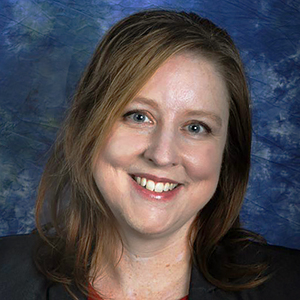PRINTING United Alliance is pleased to announce that it has joined Tomorrow’s Workforce Coalition to advocate for economic development policy that aims to strengthen America’s workforce. The coalition was established by The American Society of Association Executives (ASAE) and the Professional Certification Coalition (PCC) with the goal of seeing The Freedom to Invest in Tomorrow’s Workforce Act (S. 722/H.R. 1477) signed into law.
The Act is a bipartisan effort led by Congressman Rob Wittman (R-VA) and Congresswoman Abigail Spanberger (D-VA) in the House and Senators Amy Klobuchar (D-MN) and Mike Braun (R-IN) in the Senate. The House and Senate versions are identical. Tomorrow’s Workforce Coalition will be working on Capitol Hill to secure additional co-sponsors for the bill.
In this Printing Impressions article, Overcoming Industry Staffing and Labor Shortages in 2023 — and Beyond, readers will gain insight into the various challenges facing the printing industry in terms of recruiting and retaining skilled labor. The proposed legislation would empower workers of any educational background, skill level, or age and would benefit not only the printing industry, but all industries and professions that rely on employees with specialized training or recognized credentials.
The bill would impact 529 education savings plans. 529 plans are state-sponsored education savings accounts that are exempt from federal taxes if funds are used to pay for qualified education expenses. Many states offer additional tax breaks if you invest in their plans, commonly in the form of state income tax deductions or credits.
The proposed legislation would allow Americans to use 529 education savings accounts for skills training, credentialing, and certification programs. Additionally, the bill would allow students to use their 529 funds to pay for associated costs related to certification exams and maintenance of certification credentials, allowing lifelong students to upskill and reskill throughout their careers. These programs could encourage more people to enter manufacturing industries, such as printing, and other skills-based careers.
Currently, 529 plans can only be used for college, graduate, or professional degrees; education programs from Title IV accredited institutions; registered apprenticeships; and certain K-12 tuition and student loan repayments. Under the current regulations, 529 plan beneficiaries cannot use funds to obtain or maintain recognized postsecondary credentials, including professional certifications, licenses and other valuable training or credentials.
The bill addresses credentialing for “middle-skill” jobs, which require more than a high school education but not a bachelor’s degree and comprise a large component of America’s labor market.
Chief Economist at LinkedIn, Dr. Karin Kimbrough appeared before a House Education and Workforce Committee hearing titled, Competencies Over Degrees: Transitioning to a Skills-Based Economy, and reported that their research found that when shifting to a skills-first hiring approach, the number of qualified eligible workers increased by nearly 20 times. With an estimated 1.6 unfilled positions for every unemployed individual, Dr. Kimbrough suggested to the committee that skills-based hiring allows employers to satisfy their demand for skilled labor. The bill would complement a skills-based hiring approach by shifting the paradigm for 529 plans from “college savings plans” to “career savings plans.”
“PRINTING United Alliance is a leader in the printing industry for education, training, and certifications, and the Freedom to Invest in Tomorrow’s Workforce Act is a great step forward to promote the printing industry to America’s future workforce,” said Ford Bowers, CEO, PRINTING United Alliance. “The Alliance supports the use of 529 account funds to cover education and credentialing needed to train future print and graphic communications professionals, in what has been deemed by the federal government, an essential critical infrastructure workforce.”
In this article Stephanie Buka, Government Affairs Coordinator, PRINTING United Alliance, addresses Tomorrow’s Workforce Coalition supporting federal legislation to expand eligible uses of 529 savings plans. More information can be found at Business Excellence-Legislation or reach out to Steph should you have additional questions specific to how these issues may affect your business: sbuka@printing.org.
To become a member of the Alliance and learn more about how our subject matter experts can assist your company with services and resources such as those mentioned in this article, please contact the Alliance membership team: 888-385-3588 / membership@printing.org.







